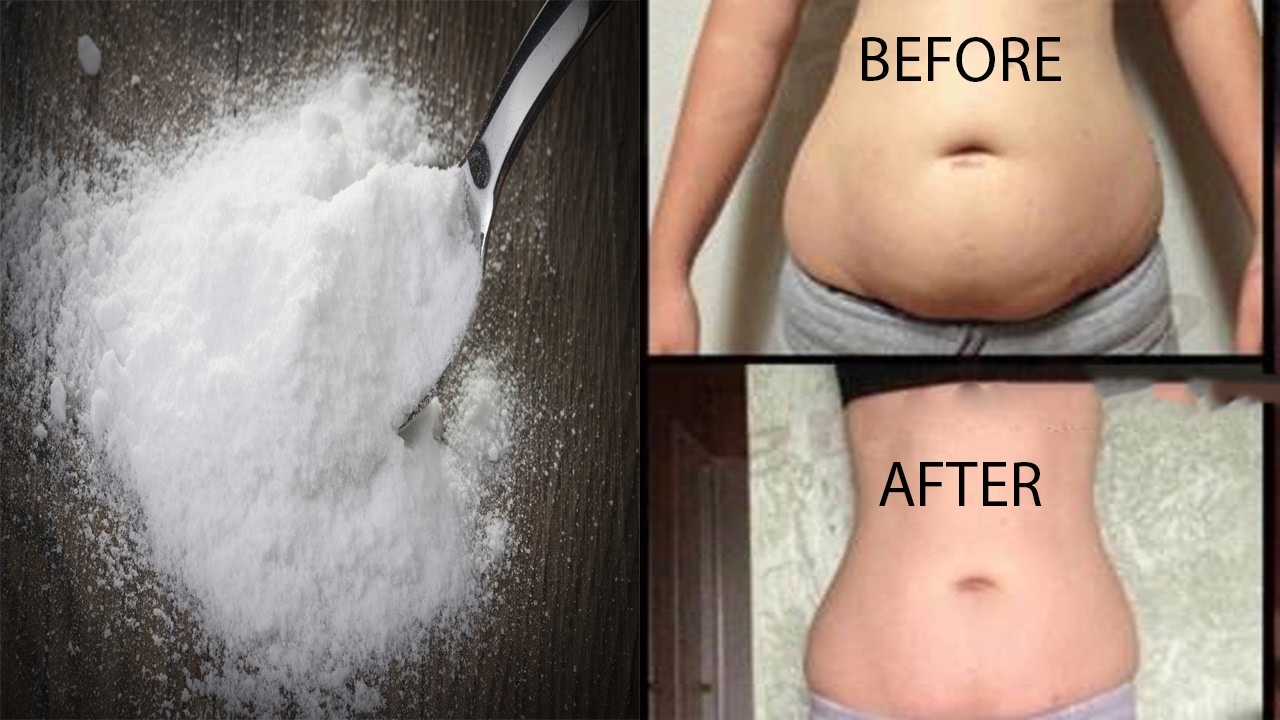If I had 50 cents for every natural weight-loss claim out there, well, I’d have so many cents I wouldn’t have to write anymore.
Yet another “miracle weight loss” ingredient found in your kitchen cupboard: Baking soda AKA bicarb. Yep, the same powder that makes bread or cookies rise – is the latest ingredient to be saddled with weight-loss claims.
Some blogs claim it can help you speed up weight loss (though, they often don’t go into details regarding how).
In reality, there’s precisely zero science behind using baking soda for weight loss.
Um, why would people think baking soda works for weight loss anyway?
A quick chemistry class refresher: “Baking soda is a chemical compound called sodium bicarbonate,” explains Dr Rachele Pojednic, an assistant professor of nutrition at Simmons College.
When you consume baking soda – typically by mixing it with water and drinking it – it reacts with your stomach acids to form salt, water and carbon dioxide, says Dr Pojednic. “The most common (medical) use for sodium bicarbonate has typically been as an antacid,” she says.
Baking soda, with its alkaline profile, can actually help soothe symptoms like indigestion and nausea, which can be caused by excess acid in your stomach – and, if your stomach feels better, it might also feel lighter.
“Your stomach is supposed to be at a very low (acidic) pH, which is what causes the early stages of protein digestion,” says Dr Pojednic. “If you eat a big meal high in protein (or maybe even high fat), your gastric cells would likely secrete extra acid to break that food down.”
The acid itself isn’t going to cause distress, but if there’s too much pressure in your stomach, that acid could squeeze up into your oesophagus and cause irritation like indigestion or acid reflux.
“If you take an antacid (like baking soda), it will ‘neutralise’ the acid that gets into the oesophagus or the digestive tract and relieve the irritation of the acid,” she explains.
But here’s the thing: That baking soda might cause even more bloating in the short term (its byproduct, again, is carbon dioxide – so you’ll burp it out eventually).
So while baking soda might help your stomach feel better, it definitely won’t help you lose weight. “There would be no physiologic reason sodium bicarbonate would increase weight loss, except perhaps to make a person feel more full, decreasing kilojoule intake,” says Dr Pojednic.
Remember: Weight loss only happens when you create a kilojoule deficit (i.e. you burn more kilojoules than you consume); drinking baking soda is not going to magically make extra kilojoules disappear – unless you’re too uncomfortable from drinking baking soda to eat. (Absolutely a bad idea.)
So, is there anything else baking soda can do?
There is some evidence that baking soda could influence your performance at the gym.
When athletes consumed sodium bicarbonate 60 minutes before a lower-body strength-training session, they were able to complete more reps with less muscle fatigue than participants who consumed a placebo, according to research published in the European Journal of Applied Physiology.
In another study published in the journal PLOS ONE, cyclists who ingested sodium bicarbonate 60 minutes before exercise also showed improved times to exhaustion.
“Sodium bicarbonate may benefit endurance by making the blood slightly more alkaline (i.e., less acidic),” Dr Pojednic explains. Think about the lactic acid that builds up when you work out, eventually causing your muscles to burn and forcing you to stop or slow down. “Having less acid in the working muscle would actually delay the onset of muscle fatigue,” she says.
To get those benefits, the most effective dose of baking soda seems to be 0.3g per kilogram of body mass per day, “but that would be in a very active person who’s training for an event,” says Dr Pojednic – not the casual gym-goer.
The biggest issue: More often than not, consuming baking soda would cause abdominal distress, which ultimately impedes your athletic performance. “If you’re doubled over with stomach pain, you can’t exactly compete at your best!”
The bottom line: Use baking soda to make bread and cookies, and stick to proven methods like consuming a healthy, balanced diet and exercising regularly when you want to lose weight.
By: Ashley Mateo
Fuente: www.health24.com
